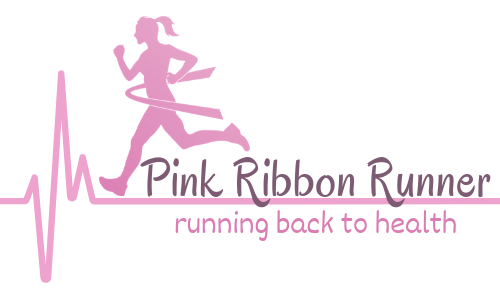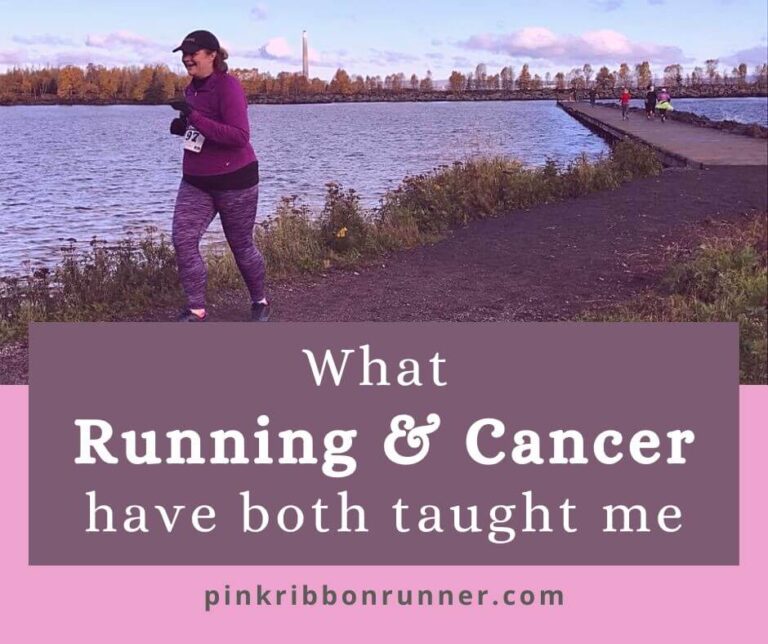Grieving a Sports Injury
A sports injury can be difficult to heal from physically, mentally and emotionally. Some in the field of sports psychology believe we go through phases similar to grieving. After exploring the topic, diving into the science, watching my fellow athletes heal from injury and being injured myself, I believe we do grieve.
My Injury
I have been injured. About 2 years ago, I badly sprained my ankle. I was stepping out of our camping trailer, in a hurry, and landed with uneven footing. I felt the pain instantly. It traveled through my foot, up my leg and back, straight to my brain. I saw stars and fell to the ground. Instantly, I went through a cascade of emotions; disbelief, anger, fear and sadness. I was training to run a personal best time in an upcoming half marathon. It was something I really wanted to achieve for myself. And now, I wasn’t sure that was going to happen. What had I done?
Going through a grieving process
I went through, what psychologists say, is two of the stages of grief that day. I was immediately in denial. What did I just do? I could still run, right? And anger. I was so angry with myself for not paying attention to my footing. I was angry with my husband who was the reason I wasn’t paying attention. He distracted me for that split second it took. Of course, it wasn’t his fault. It wasn’t my fault. It was an accident. But I was still angry at both of us because I was now entering the five stages of grief of a sports injury.
It isn’t quite the same as grieving a loss
Now, I am not trying to belittle the tremendous grief of loss of a loved one. Nor am I trying to minimize the grief process of a cancer or major illness diagnosis. I have been through both of those life-altering events. I have been through this type of major grief before. I know how tremendously painful these devastations can be. I am not saying that a sports injury compares to this level of grief.
There is some research to support this concept
However, there is research that suggests that we also go through the grief process for smaller life-events. While a sprained ankle is much less significant in life, it still triggers a cascade of emotions and behaviors that are, in fact, grieving.
Now, my sprained ankle was minor, although it did take a good year and a half to fully recover from it. It was a nasty sprain and I didn’t accept that I was injured for a long time. I hiked and ran on that foot for significant distances, much to the dismay of my chiropodist. Was this denial? Yes, I was in denial.
Most athletes experience injuries at some point
Of course, other athletes have much worse injuries than my sprained ankle. In fact, if we have participated in a sport for a number of years, we are, at some point, likely to come up injured. My husband injured his shoulder playing golf. Many of my runner friends are all currently injured with various degrees of ankle, shin, knee and leg issues. And, of course, we all have seen nasty injuries from professional footballers and hockey players. All of these athletes are all dealing with their injuries both physically and mentally. Sports is a mental game, just as much as, if not more so, than physical.
” Work hard. And have patience. Because no matter who you are, you’re going to get hurt in your career and you have to be patient to get through the injuries. ” – Randy Johnson –
So, what are these stages of grief from a sports injury perspective? Let’s explore this further.

Denial
This is that stage of disbelief. What did I just do? I can’t be injured! I will not succumb to my injury. The doctor must be wrong. I can still race.
It is the moment when we are first injured. Denial can also reappear later when we are told we can’t participate in our sport.
Refusing to acknowledge my injury
I could walk, so I hiked 14 km that same day and a week later 24 km on my sprained ankle. Yes, it hurt, and I was limping, but I refused to give into my injury. No, I was not tough or brave. It wasn’t a smart choice. I was in denial.
Denial buffers our shock
It numbs our emotions. It can manifest as confusion, agitation, numbness, and blocking out the disappointment. This defensive unconscious strategy carries us through the first wave of emotional pain. The pain of not knowing if we can play again, run again, or perform again. We are protecting ourselves from a setback.

Anger
Then the reality of the situation sets in. We start to realize the potential of our loss. Painful emotions start to flood our brains. We may have to give up something we love to do.
Anger can be self directed. Why me? Why did I just do that?. We may blame ourselves. Or, it can be externalized. The doctors are quacks and don’t know what they are talking about! It can manifest as jealousy of the uninjured. Why do they get to run, and I can’t?
Anger can be redirected towards objects, strangers, and family. It is sometimes expressed as outbursts or it can be internalized and quiet. In sports injury, anger is usually short lived. Yes, it is usually not rational, but it is a normal part of the grieving process; something we need to feel and move on from.

Bargaining
The third stage of grief is bargaining. We need to regain control of ourselves. We may feel helpless, vulnerable and frustrated. With a sports injury, the length of this stage is usually related to how long our injury takes to recover. The longer the recovery, the more bargaining we do.
I would do anything to play again. If I run slowly for a short distance, I will be fine. Please God, let this heal quickly. These statements are all a part of the bargaining process.
We may bargain with our doctors or physiotherapists
Can I still play soccer, doc? If I use poles, can I still go on that hike? I can still race if I wrap my knee well, right? If I stretch more, will it heal faster? I have certainly pestered my chiropractor into telling me it was okay to run just 2 km slowly.
But trying to push recovery too quickly may make our injury heal more slowly. Not recognizing this phase and pushing too hard can set us back even further.

Depression
This phase of grief may be short-lived or may spiral into a situation of clinical depression. And that may or may not depend on the severity or duration of the injury. It can be just as irrational as Anger.
It is usually triggered by thoughts of not being able to participate in the sport again. Or perhaps we think we will never achieve the level we wanted, that personal best, because of the injury. It may also be triggered by a new inactivity. We may not know what to do with ourselves now. When we are used to giving it 110%, it can be depressing to now only be able to give it 40%.
We may fear re-injury or failure. Our fitness may have declined during physical recovery and our self-confidence may be suffering. We may not be able to express this, even to our significant others, and we internalize these feelings. This can lead to anxiety and depression.
Depression may be the reason we abandon the sport all together
Feelings of hopelessness, uselessness or worthlessness may cause us to give up hope for recovery. If we can’t be at the level we were at before, then why bother? It may be embarrassing to some to continue and rebuild. We may not know if we can even achieve the same level we were at before. What’s the point. We question ourselves and our motives.
We need emotional strength and sometimes professional help to overcome
It takes emotional strength to overcome this phase. It is much easier to just give up. Professional counselling might be needed. Moving on to the next phase is necessary to fully recover mentally and that may take time. It may take even longer than physically recovering from the injury for some of us.
” Sometimes asking for help is the most meaningful example of self-reliance.” – US Senator Cory Booker –

Acceptance
But there is hope! If we move into the next phase of grief, we can accept our situation and give ourselves the time we need to heal. We can heal physically, mentally and emotionally.
Acceptance is a time of calmed emotions. We can think clearly again and move forward.
Accepting the situation does not necessarily mean we will return to the same sport we loved. It may mean that we moved onto alternative activities. It may mean that we re-enter the sport at a different level. And this is all okay.
Giving ourselves smaller, achievable goals can help reinforce success and keep us going. Recognizing that grieving an injury is a normal process, an important component of healing, can also help keep us going.
It is normal to deny the injury, be angry about it, bargain, and maybe even enter a depression. Every injured athlete goes through this process at their own rate and may skip or get stuck in some of the steps. But, I sincerely hope that just knowing this information helps us to accept an injury and move forward again.
” It takes strength to make your way through grief, to grab hold of life and let it pull you forward. ” – Patti Davis –
I eventually accepted my injury
After I accepted my sprained ankle wasn’t going to allow me a personal best race time that year, I decided I was just going to run for fun. And I had an absolute blast running with my friends and all the socialness of racing. As the years ticked by, I eventually regained my strength and achieved a personal best half marathon. I then went on to run a full marathon. It is possible to overcome.
Sometimes it just takes time.
If you found this article helpful, be sure to check out more articles on the Pink Ribbon Runner Blog.









Thank you for this post, I really needed to read it: I injured my knee almost two years ago, and it still hurts all the time. I’ve been really upset about it up until recently, where I’m starting to move into that place of acceptance with a hope of moving forward. It’s nice to know my process is not only shared, but typical! Thanks!
Thank you for sharing. I am glad you are finally able to accept it. It is tough, and sometimes a long road to get there. You are not alone. It happens to all of us! Cheers to moving forward!